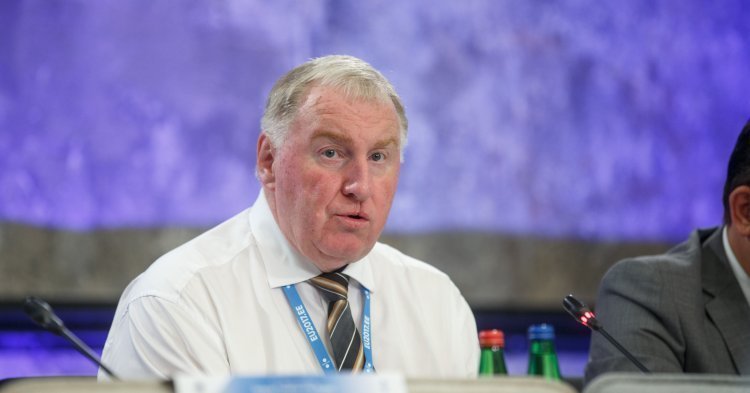States often take center stage when it is about giving a new momentum to Europe. It might seem natural as they form the EU as legal entities. For example, they are the only ones having the competence to modify the treaties.
However, a State is not always “internally” homogenous, nor the national scale the most relevant one to implement policies. In the speech he delivered on 10th October 2017, Karl-Heinz Lambertz reminds the necessity to rehabilitate the role of cities and regions as European actors and to give them the means to complete their missions successfully.
From European and national political challenges to regional and local practical challenges
The member states and the European institutions do not always reach an agreement on the policies or reforms to implement, on the policy areas, or on the way to boost European integration. But the regional and local actors face on a daily basis the necessity to find concrete solutions to the needs and concerns of the citizens.
European regions and cities have to face major political, economic, social and cultural changes mainly due to general trends such as globalization and urbanization. At the territorial level, these phenomena tend to generate increased economic and social differences within the cities as well as between urban and rural areas at the regional level. More recently, they found themselves on the front line to manage the arrival of refugees.
Cohesion policy, a European heart and soul
Two days after the European Commission released the report on “Economic, Social and Territorial Cohesion”, Karl-Heinz Lambertz reminds that “cohesion policy makes an essential solidarity-based contribution to consolidating the European Union and is the necessary counterpart to the internal market rules”. However, this policy is currently threatened by a decreasing and thereby destabilizing solidarity between regions and states, as Brexit and Catalonia illustrate it.
Furthermore, while being the second beneficiary of the European budget (up to around one third), the efficiency and impact of cohesion policy remain limited insofar as its benefits are not fairly divided. Some regions have not recovered their pre-crisis economic and social level yet. Consequently, cohesion policy has to become more ambitious, mainly through getting extra resources within the 2020-2026 multiannual financial framework, which will be soon proposed by the Commission before being negotiated.
Finally, the President of the Committee is asking for an increased capacity of action and investment for territorial bodies. It would require a more flexible implementation of the economic measures recommended or asked to the member states, as part of the European Semester or the Growth and Stability Pact.
However, these fiscal rules tend to undermine public investment to a large extent, and so cannot meet the needs for the competitiveness of Europe today. Then, a modernization of the cohesion policy should probably dissociate more the performances of a region from the ones of the state when it is about getting funds, especially because their orientations are sometimes divergent and because national shortcomings highly compromise local or regional potential.
“Building a bottom-up Europe, with the involvement of European citizens.”
Beyond material aspects, the assertion of cities and regions as real European actors may reinforce local democracy. How? By better connecting the different levels of governance in order to promote dialogue with citizens, because “this is by addressing the citizens’ expectations that the fear of Europe will be replaced by a desire for Europe”. Finally, trust in local and regional institutions, compared to European and national institutions, gives them legitimacy as mediators and preferred intermediaries.
Furthermore, transnational and cross-border cooperation must be supported to better correspond to the reality. Indeed, regions and cities belonging to different countries are sometimes – or even often – more capable and motivated to carry out common projects. Also, the movements of citizens in Europe (especially workers, students, entrepreneurs), while remaining limited, are constantly increasing.
The territorial bodies have a lot to gain from these exchanges, in terms of expertise, performance and relevance, in broad fields such as environment, transports, research and development, or innovation. In this way, Karl-Heinz Lambertz hopes that the task force “subsidiarity and proportionality”, mentioned by Jean-Claude Juncker last 13th September, will make good use of this expertise.
“Just as the European level influences the local and regional levels, local and regional levels should now be able to exert their full influence at the European level.” Beyond a legal and political framework defined by the states and the European institutions, a more “bottom-up” approach of European integration would make the implementation of policies more efficient, taking into account the cities’ and regions’ features.
The realization and the personalization of (inter)local and inter(regional) projects would materially and democratically highlight the contribution of Europe to the citizens’ daily life. But beyond a purely mechanical reasoning, seizing such opportunities once more depends on political choices.


Follow the comments: |
|
